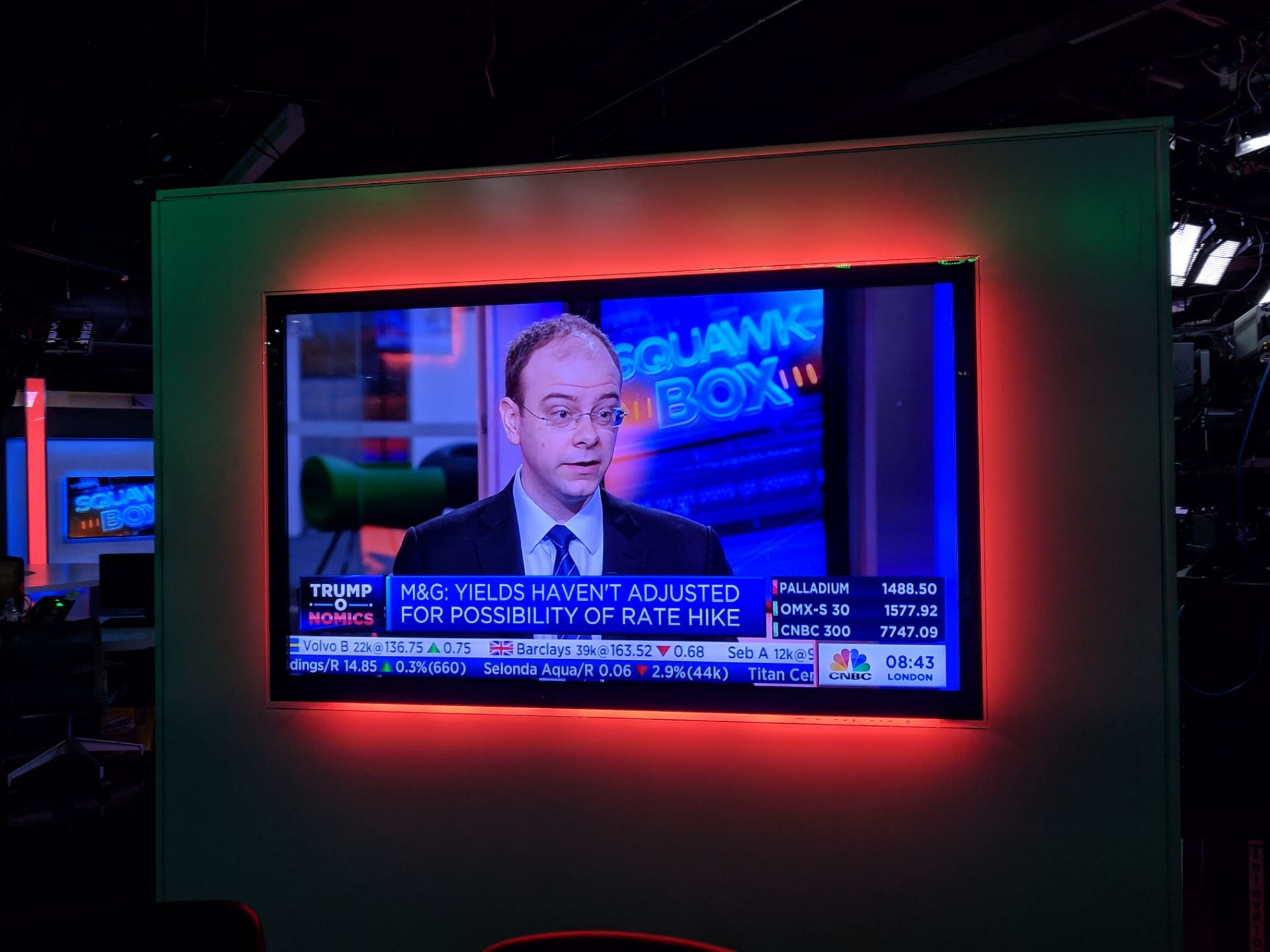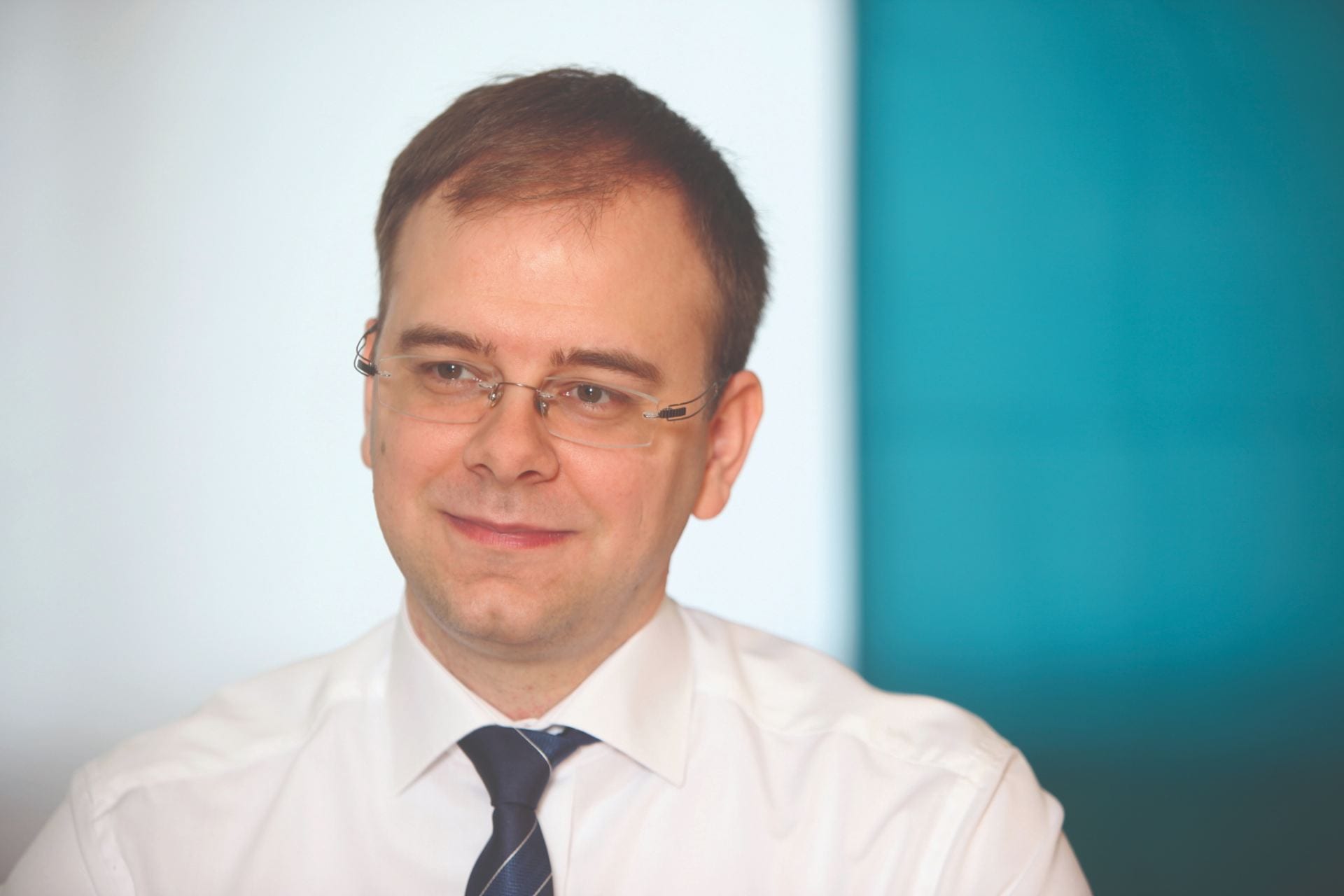Bond fund manager Wolfgang Bauer discusses his move from chemistry to investment management
“But how did a chemist end up working in finance?” – if I had a pound for every time I was asked some version of this question…! It’s a fair query, of course. After all, I had spent a decade at university studying chemistry. I had obtained a PhD from Cambridge, published several research papers and had been granted a patent. So, why on earth did I decide to abandon chemistry and start pretty much from scratch in a completely different field?
Well, it wasn’t any specific event or a sudden epiphany that made me change my career path in such a profound way. It was instead a gradual process in which ultimately, I realised that I simply wasn’t as committed as many of my PhD colleagues were to completely dedicate my life to a narrow slice of scientific research. I didn’t take the decision lightly, of course, but when I found myself becoming far more interested in news articles about the global financial crisis that was unfolding at the time than in chemistry research papers, I knew it was time to take action. So, in parallel to wrapping up my PhD, I attended lectures on economics, finance and accounting at Judge Business School. I also engaged in conversation with as many representatives of financial institutions as I could at career fairs in Cambridge, and I talked many times to the lovely folks at the Careers Service, who were a tremendous help throughout the process.
The vast financial industry offers plenty of opportunities and, at first, I was rather overwhelmed trying to figure out which path would be the most suitable one for me. After some soul-searching, I eventually decided to pursue a career in investment management. What I find most appealing about this line of business is that it serves a very clear purpose within the economy, in my view. Essentially, we are the interface between those who have excess capital and need to find solutions to meet certain long-term return targets or financial obligations (i.e. the investors in our funds) and those who require capital to fund their operations or growth (i.e. corporations or governments whose securities we buy). As investment managers, we try to ensure that capital gets deployed to the most productive uses – from which investors, investees and the economy as a whole should all benefit.
‘giving up chemistry after I had invested so much time and effort into my studies and research, was a tough and frankly pretty scary decision for me’
With regards to my role in particular, I have become a bond fund manager. I am in charge of three absolute return funds and an inflation outcome strategy, in which I invest in nearly all corners of the liquid fixed income universe: government bonds, investment grade and high yield credit, emerging market debt, currencies, you name it. Most of the time, I am sitting at my Bloomberg terminal, trying to identify investment opportunities that allow my funds to generate good returns without exposing my investors to undue amounts of risk. However, communication is another major part of my role, as I frequently talk to credit analysts, macro strategists, prospective and existing investors, risk managers and many other stakeholders. I genuinely enjoy this combination of sober analysis and human interaction.

As I alluded to earlier, giving up chemistry after I had invested so much time and effort into my studies and research, was a tough and frankly pretty scary decision for me. Also, being a newcomer to the financial industry at an age when most of my peers already had years of market experience under their belt, put (and is still putting) considerable pressure on me with regards to career progression. But I certainly do not want to discourage current PhD students who are thinking about a similar occupational change – quite the opposite actually. Even if there is zero thematic overlap between subject of study and work life, the transferable skills acquired during a PhD degree are immensely helpful in building one’s career: problem solving, time and project management, self-motivation, adaptability and flexibility, interdisciplinary team work and so on.
‘There is no such thing as a perfect data set; you are never going to see the whole picture’
For me however, the single most important skill I built up during my PhD was a certain degree of resilience towards ambiguity and uncertainty. Let me explain: up until the end of my undergraduate studies, the world was seemingly deterministic. The curriculum for each class was finite, and answers to exam questions were either right or wrong. But doing actual research in the chemistry lab taught me that reality is far more complex. There is no such thing as a perfect data set; you are never going to see the whole picture. Experimental results are very often inconclusive and produce more questions than answers, but you still have to arrive at a conclusion eventually. In this regard, the experiences of a research scientist and a fund manager are remarkably similar. Economic data and market reactions often do not seem to make sense or appear outright contradictory, which can be very challenging at times. I am fully aware that only very rarely do I have access to every bit of data that I would in a perfect world. Nonetheless, I have to make investment decisions and accept the uncertainty that goes along with it. I am genuinely glad that I went through the ’ambiguity bootcamp’ of my PhD beforehand.
Should any readers contemplate changing tack after a PhD, I wish you all the best. Think long and hard about which topics you are truly passionate about, carefully ponder the implications of your decision and gather as much information as possible about different career options, for example from the Careers Service. And please don’t sell yourself short: you have acquired highly valuable transferrable skills throughout your PhD, which are going to serve you well in pretty much any professional field.
PhD applying for a role in or outside academia/research? Use our CVs & Cover Letters for PhDs and Postdocs Book to ensure your application is the best it can be!

